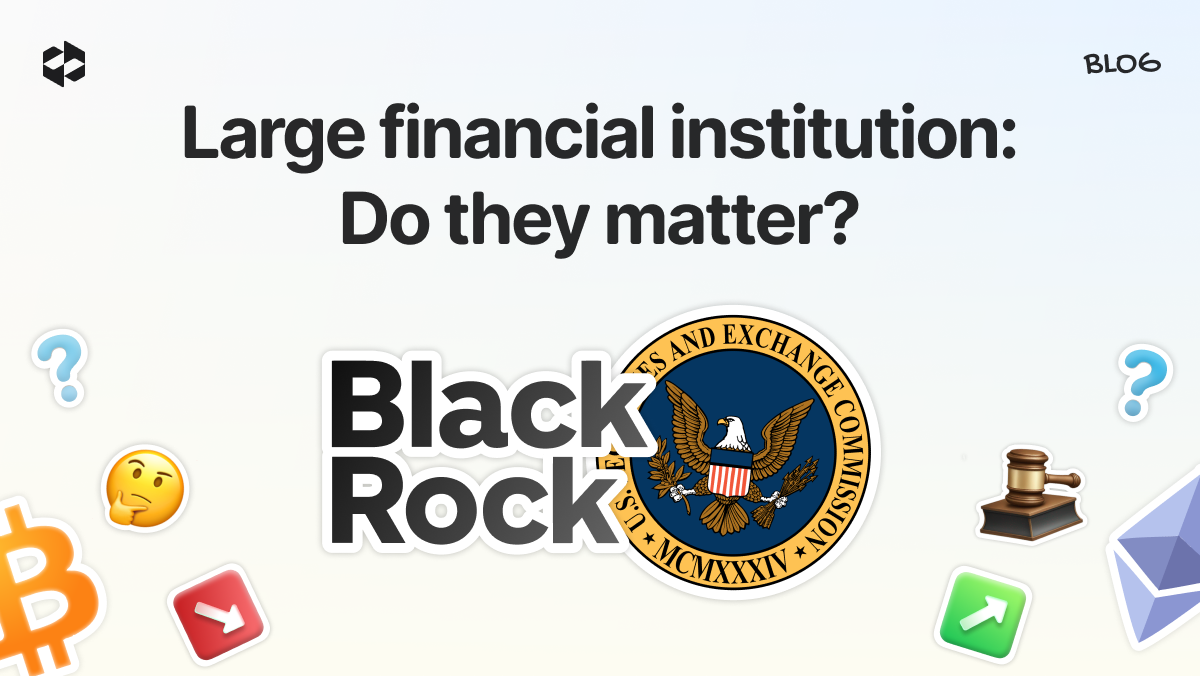
Traditional financial institutions have increasingly participated in the crypto market in recent years. A notable development was BlackRock’s purchase of $600 million worth of Bitcoin in January, its largest acquisition in 2025 so far.
As the world’s largest asset management firm, BlackRock’s investment could significantly impact the crypto market and the broader financial sector. This move may influence Bitcoin’s price, accelerate institutional adoption, and contribute to evolving regulatory frameworks. Let us discuss in more detail the possible impact of increased participation by large financial institutions in crypto investments, focusing on the effects of the recent BlackRock's investment in Bitcoin.
Enhanced market liquidity and price volatility
BlackRock’s investment in Bitcoin will likely significantly impact this cryptocurrency’s liquidity and price volatility. Bitcoin is known for its price fluctuations, but the entry of major institutional investors could introduce greater market stability and enhance its legitimacy. This result, in turn, may attract additional institutional investors.
A large purchase like BlackRock’s would likely increase Bitcoin’s price. Historically, large acquisitions by institutional players have resulted in substantial price surges due to the influx of capital and the positive market sentiment such moves generate.
However, Bitcoin has a relatively lower market capitalization than traditional assets such as gold or equities. Hence, a $600 million buy order could have only a pronounced short-term impact on Bitcoin’s price. Over time, the involvement of large institutional investors like BlackRock may contribute to greater stability of the crypto market by establishing a steady source of demand, potentially reducing the volatility that has long deterred more risk-averse investors.
Mainstream adoption of cryptocurrencies
BlackRock’s $600 million investment represents a significant endorsement of Bitcoin and the broader cryptocurrency industry. BlackRock serves institutional investors, pension funds, and other large-scale financial entities. So, if the firm publicly commits to purchasing Bitcoin, it signals a shift in perception, positioning cryptocurrencies as legitimate investments rather than speculative ventures. This message could encourage wider adoption among both institutional and retail investors, accelerating cryptocurrencies’ integration into mainstream finance.
Furthermore, BlackRock’s involvement may set a precedent for other major financial institutions. Banks, hedge funds, and asset managers that have previously hesitated due to regulatory uncertainty and perceived risks may now view some cryptocurrencies as viable, institutional-grade investments. As more financial entities enter the market, a reinforcing growth cycle could emerge, drawing additional investment, increasing market liquidity, and driving innovation within the cryptocurrency industry.
Regulatory scrutiny and frameworks
BlackRock’s entry into the crypto market has the potential to accelerate the development of regulatory frameworks for Bitcoin and other digital assets. The involvement of major financial institutions often leads to increased regulatory attention, particularly in the United States. Since Bitcoin remains a relatively new asset class, regulatory uncertainty has been a key obstacle to broader institutional adoption. However, BlackRock’s ability to deal with complex regulatory environments may indicate to policymakers that the crypto market is mature enough for more structured regulations.
Additionally, the growing participation of institutional investors may encourage governments and regulatory agencies to establish clearer rules regarding cryptocurrency trading, classification, and taxation. For instance, the U.S. Securities and Exchange Commission (SEC) could provide more definitive guidance on whether Bitcoin should be classified as a commodity, security, or another type of asset. Greater regulatory clarity would help institutions assess risks more effectively, which might increase investment in Bitcoin and other cryptocurrencies.
Stronger Bitcoin’s reputation among investors
BlackRock’s recent acquisition of $600 million worth of Bitcoin could strengthen this cryptocurrency’s position as a store of value, often called "digital gold." Due to its limited supply and decentralized nature, Bitcoin has historically been regarded as a hedge against inflation, drawing comparisons to gold as a safeguard against economic instability.
By investing such a significant amount, BlackRock may signal confidence in Bitcoin’s long-term viability, particularly as a protective asset against risks within the traditional financial system, such as inflation and currency devaluation.
This development could also influence broader market perceptions of Bitcoin and other major cryptocurrencies. As institutional investors increasingly recognize Bitcoin as a viable asset for portfolio diversification, its status could shift from a speculative instrument to a mainstream investment vehicle. This transition may lead to greater institutional adoption and broader integration into the global financial system.
Disclaimer
Please keep in mind that the above information is based exclusively on our observations and is provided for informational purposes only. It doesn’t constitute any kind of financial advice nor represents an official forecast. Cryptocurrency is a highly volatile asset, and you are investing in it at your own risk.
